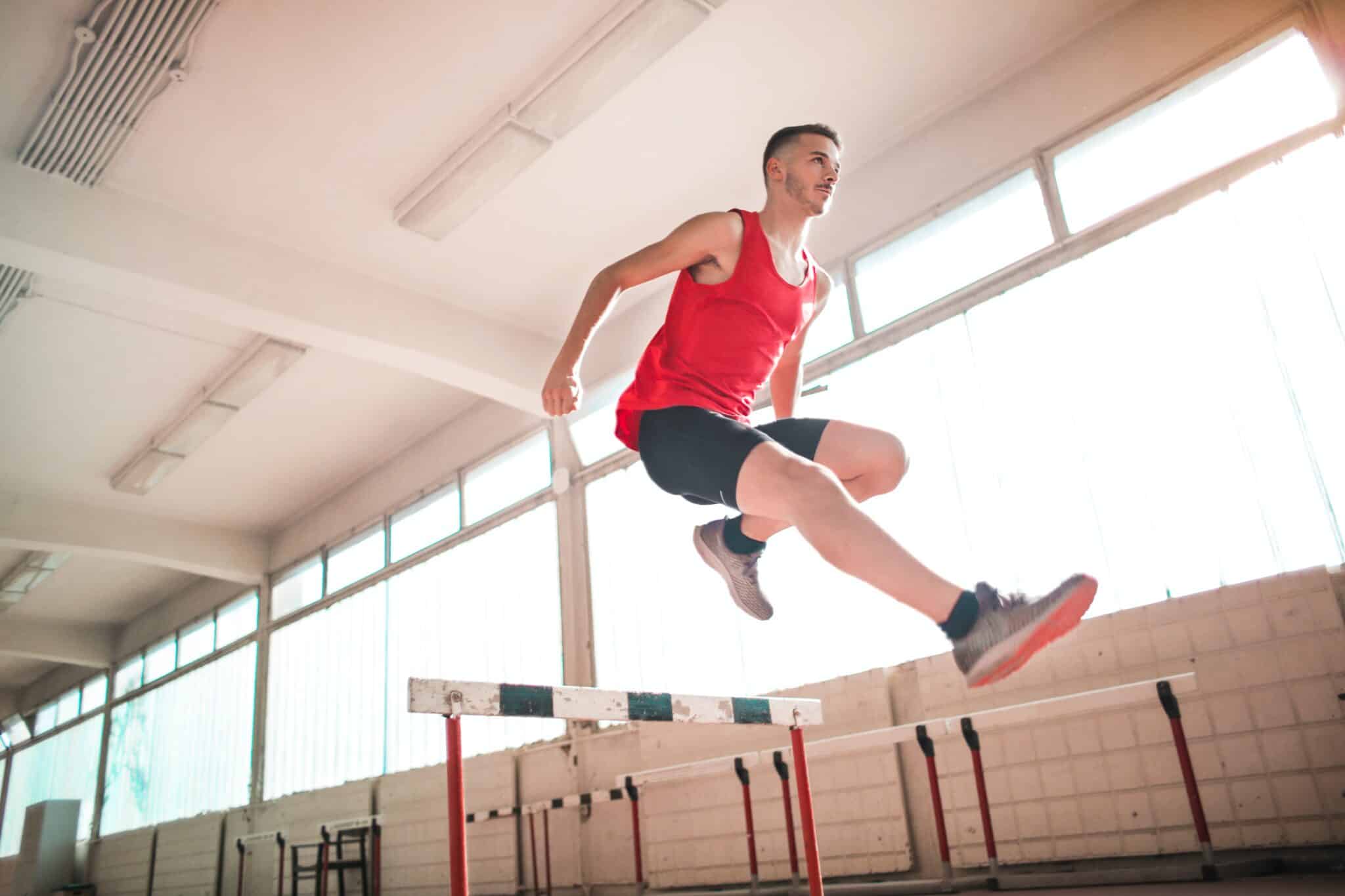With 2023 Ivy League Acceptance Rates well below 10%, it’s no secret that Getting Into an Ivy League School is highly competitive. Even if you’re a top athlete. While other Division 1 schools offer generous athletic scholarships, Ivy Leagues trust their reputation alone will be enough to attract talented student-athletes.
It’s also worth noting that Ivy Leagues do not accept athletes if they don’t measure up academically, regardless of how talented they are. In other words, academics are the priority, not athletics. So while being a top athlete will help recommend you to an Ivy League, it does not guarantee you admission (or a scholarship).
Understanding financial aid at Ivy League colleges
Ivy League colleges do not offer merit-based or athletic scholarships. Instead, they provide need-based financial aid — with all Ivy Leagues meeting 100% of students’ demonstrated need. In order to qualify for need-based aid, you will need to submit the CSS Profile and the Free Application for Federal Student Aid (FAFSA).
Every year, the FAFSA application opens on October 1st and is due by June 30th. Each school has its own priority deadlines, so it’s a good idea to submit your application as soon as you are able to! The same goes for the CSS Profile. For more information about the FAFSA, check out our article Everything You Should Know About FAFSA.
Now, you’re probably wondering what “demonstrated need” means. Basically, demonstrated financial need is calculated by subtracting the student’s expected family contribution (EFC) from the school’s cost of attendance (COA). Again, all Ivy Leagues meet 100% of demonstrated financial need. For some schools, financial aid packages include student loans, which will have to be paid back. Some schools, however, such as Harvard and Columbia, only award need-based grants, which do not need to be paid back.
In conclusion, in order to understand how financial aid works at Ivy League colleges, you’ll need to understand The Differences between Need-Based and Merit-Based Financial Aid. And remember, Ivy Leagues only grant need-based aid!
How the recruitment process works for Ivy League sports
Unlike many other D1 schools, the Ivy League do not participate in the National Letter of Intent program. A National Letter of Intent is a binding agreement between schools and student-athletes, where a student is committed to playing for the school for one year.
Instead of offering a binding National Letter of Intent, Ivy Leagues offers student-athletes “Likely Letters.” So, what’s a Likely Letter? Basically, a Likely Letter is when an Ivy League expresses interest in admitting a student-athlete, as long as they continue to perform well, both physically and academically. While Likely Letters are not binding agreements, they are the Ivy League’s way of bringing a bit more clarity to the recruitment process.
One of the disadvantages of not participating in the National Letter of Intent program is that student-athletes interested in attending the Ivy League have a limited time to commit. If they don’t commit to the program quickly, they risk having their spot offered to another athlete.
A closer look at Ivy League sports
As you may know, there are eight Ivy League colleges: Brown University, Columbia University, Cornell University, Dartmouth College, Harvard University, Princeton University, University of Pennsylvania, and Yale University. Let’s take a quick look at each of these school’s athletic programs:

Brown University Athletics
Mascot: Brown Bears
Men’s Teams: Baseball, Basketball, Crew, Cross Country, Football, Ice Hockey, Lacrosse, Sailing (Co-ed), Soccer, Swimming & Diving, Tennis, Track & Field, Water Polo, Wrestling
Women’s Teams: Basketball, Crew, Cross Country, Equestrian, Fencing, Field Hockey, Gymnastics, Ice Hockey, Lacrosse, Rugby, Sailing, Soccer, Softball, Swimming & Diving, Tennis, Track & Field, Volleyball, Water Polo
Columbia University Athletics
Mascot: Columbia Lions
Men’s Teams: Baseball, Basketball, Cross Country, Fencing, Football, Golf, Heavyweight Rowing, Lightweight Rowing, Soccer, Squash, Swimming & Diving, Tennis, Track & Field, Wrestling
Women’s Teams: Archery, Basketball, Cross Country, Fencing, Field Hockey, Golf, Lacrosse, Rowing, Soccer, Softball, Squash, Swimming & Diving, Tennis, Track & Field, Volleyball
Cornell University Athletics
Mascot: Big Red Bear
Men’s Teams: Baseball, Basketball, Cross Country, Football, Golf, Ice Hockey, Lacrosse, Polo, Heavyweight Rowing, Lightweight Rowing, Soccer, Sprint Football, Squash, Swimming & Diving, Tennis, Track & Field, Wrestling
Women’s Teams: Basketball, Cross Country, Equestrian, Fencing, Field Hockey, Gymnastics, Ice Hockey, Lacrosse, Polo, Rowing, Sailing, Soccer, Softball, Squash, Swimming & Diving, Tennis, Track & Field, Volleyball
Dartmouth Athletics
Mascot: Big Green
Men’s Teams: Baseball, Basketball, Cross Country, Football, Golf, Ice Hockey, Lacrosse, Heavyweight Rowing, Lightweight Rowing, Sailing, Skiing, Soccer, Squash, Swimming & Diving, Tennis, Track & Field
Women’s Teams: Basketball, Cross Country, Equestrian, Field Hockey, Golf, Ice Hockey, Lacrosse, Rowing, Rugby, Sailing, Skiing, Soccer, Softball, Squash, Swimming & Diving, Tennis, Track & Field, Volleyball
Harvard Athletics
Mascot: Harvard Crimson
Men’s Teams: Baseball, Basketball, Cross Country, Fencing, Football, Golf, Ice Hockey, Lacrosse, Heavyweight Rowing, Lightweight Rowing, Sailing, Skiing, Soccer, Squash, Swimming & Diving, Tennis, Track & Field, Volleyball, Water Polo, Wrestling
Women’s Teams: Basketball, Cross Country, Fencing, Field Hockey, Golf, Ice Hockey, Lacrosse, Heavyweight Rowing, Lightweight Rowing, Rugby, Sailing, Skiing, Soccer, Softball, Squash, Swimming & Diving, Tennis, Track & Field, Volleyball, Water Polo
Mascot: Princeton Tigers
Men’s Teams: Baseball, Basketball, Cross Country, Fencing, Football, Golf, Hockey, Lacrosse, Heavyweight Rowing, Lightweight Rowing, Soccer, Squash, Swimming & Diving, Tennis, Track & Field, Volleyball, Water Polo, Wrestling
Women’s Teams: Basketball, Cross Country, Fencing, Field Hockey, Golf, Lacrosse, Lightweight Rowing, Rugby, Soccer, Softball, Squash, Swimming & Diving, Tennis, Track & Field, Volleyball, Water Polo
Mascot: Quaker
Men’s Teams: Baseball, Basketball, Cross Country, Fencing, Football, Sprint Football, Golf, Lacrosse, Heavyweight Rowing, Lightweight Rowing, Soccer, Squash, Swimming & Diving, Tennis, Track & Field, Wrestling
Women’s Teams: Basketball, Cross Country, Fencing, Field Hockey, Golf, Gymnastics, Lacrosse, Rowing, Soccer, Softball, Squash, Swimming & Diving, Tennis, Track & Field, Volleyball
Yale Athletics
Mascot: Bulldog
Women’s Teams: Basketball, Cross Country, Fencing, Field Hockey, Golf, Gymnastics, Ice Hockey, Lacrosse, Rowing, Sailing (Coed), Sailing, Soccer, Softball, Squash, Swimming & Diving, Tennis, Track & Field, Volleyball
Men’s Teams: Baseball, Basketball, Crew (Heavyweight), Crew (Lightweight), Cross Country, Fencing, Football, Golf, Ice Hockey, Lacrosse, Sailing (Coed), Soccer, Squash, Swimming & Diving, Tennis, Track & Field
Could Ivy Leagues offer athletic scholarships in the future?
The fact that Ivy League schools are the only major conference that doesn’t award athletic scholarships has always been controversial. That said, is it possible for Ivy Leagues to offer athletic scholars
Two recent Supreme Court cases, the 2015 O’Bannon v. NCAA case and more recently, the 2021 NCAA v. Alston case, challenge the notion that college sports are merely amateur activities; rather, these cases demonstrate how college sports are professional activities that should be financially compensated.
Currently, there is a Supreme Court case where two plaintiffs, current Brown University women’s basketball player Grace Kirk and former Brown men’s basketball player Tamenang Choh, are challenging all eight Ivy League colleges. The suit claims the Ivy League agreement to restrict athletic scholarships “constitutes unlawful price fixing in violation of the Sherman Antitrust Act.”
The fact that Ivy League schools are the only major conference that doesn’t award athletic scholarships has always been controversial. That said, is it possible for Ivy Leagues to offer athletic scholarships in the future? Maybe.
Two recent Supreme Court cases, the 2015 O’Bannon v. NCAA case and more recently, the 2021 NCAA v. Alston case, challenge the notion that college sports are merely amateur activities; rather, these cases demonstrate how college sports are professional activities that should be financially compensated.
Currently, there is a Supreme Court case where two plaintiffs, current Brown University women’s basketball player Grace Kirk and former Brown men’s basketball player Tamenang Choh, are challenging all eight Ivy League colleges. The suit claims the Ivy League agreement to restrict athletic scholarships “constitutes unlawful price fixing in violation of the Sherman Antitrust Act.”

Key takeaways and moving forward
Do Ivy Leagues give scholarships for sports? As of now, no, but all of that could change given recent lawsuits! While Ivy Leagues are committed to meeting 100% demonstrated financial need, the fact that Ivy League athletic scholarships aren’t currently offered could violate antitrust laws. So we’ll just have to sit back and see.
In the meantime, if you’re preparing for your own college applications, you may be interested in reading our articles, What You Should Know About Early Action and Early Decision Applications and What Colleges Are Test-Optional for 2023?.
Subscribe to our blog
Don’t miss out on the latest college admissions trends, updates, and tips!



